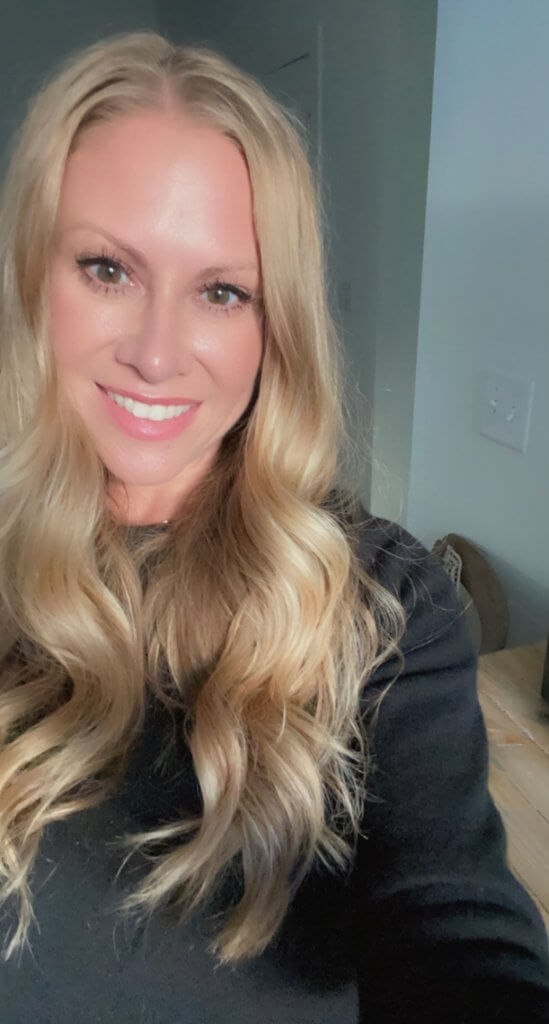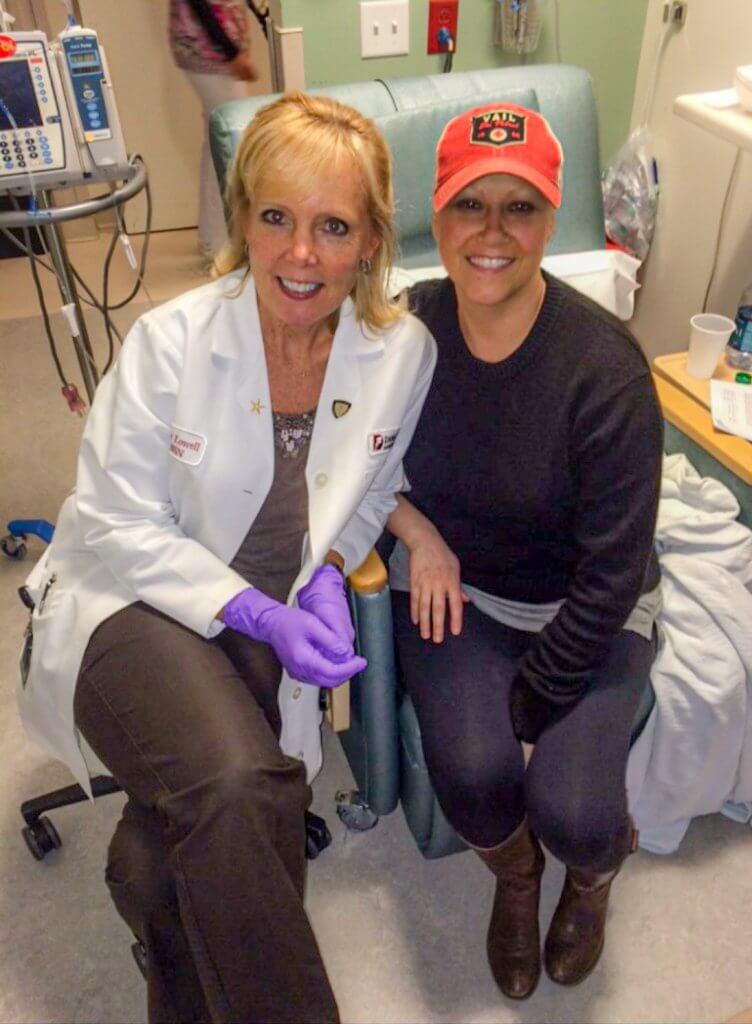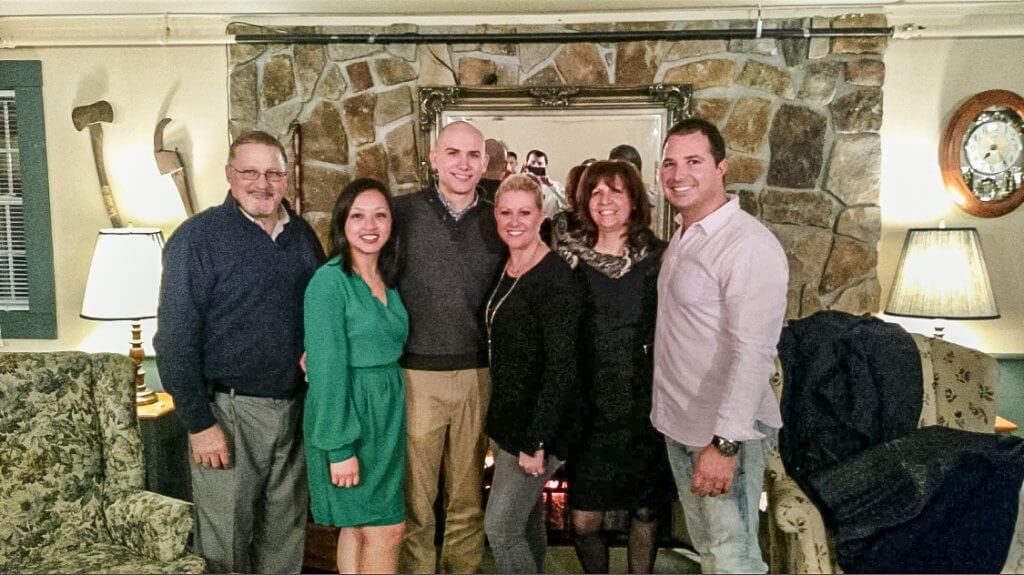It’s impossible for Jenn Thompson to forget the low moments of her experience with cancer — her diagnosis, her hair falling out, and the sense that she lost a piece of herself. But now, more than five years after completing treatment, Thompson can say that these aren’t the memories that have defined her.
“It wasn’t easy, but the love I received was absolutely profound, and you can’t experience something that beautiful unless you go through something tremendously hard,” she says.

Today, Thompson is using her experience to help others navigate their ways through cancer as a mentor in Dana-Farber’s SoulMates program.
A lump
In early 2014, Thompson noticed a lump above her left breast. Being a healthy 35-year-old, she figured it would go away on its own. But as the months passed, it got bigger, and then it was accompanied by a feeling of achiness under her armpit.
Concerned by these new symptoms, Thompson called her primary care physician, who referred her to a specialist. After undergoing an ultrasound and a mammogram, the specialist performed a biopsy on the lump. Thompson quickly learned that she had breast cancer — specifically, stage II triple–negative breast cancer.
Days later, Thompson was introduced to Erica L. Mayer, MD, MPH, a senior physician in the Breast Oncology Program at the Susan F. Smith Center for Women’s Cancers at Dana-Farber/Brigham and Women’s Cancer Center. After discussions with her care team, Thompson was put on a clinical trial and received chemotherapy both before and after undergoing a lumpectomy (also known as breast-conserving surgery). The first round of chemo was to shrink the tumor, and the second round aimed to help prevent a recurrence. As part of the clinical trial, designed to improve the standard of care for patients with triple negative breast cancer, she underwent a third round of chemotherapy accompanied by radiation.
Thompson finished her treatment in 2015, and since then, her cancer has not recurred.

“From day one I fell in love with everyone at Dana-Farber, and I formed these incredible bonds with members of my team,” Thompson says.
Rediscovering her confidence
Thompson says she’s been incredibly lucky to have people she could rely on throughout it all. However, even with this strong support system, for a time, her cancer stripped her of her confidence and how she saw herself. Her original diagnosis shattered the notion that she was indestructible, while treatments changed how she looked and felt. At moments, Thompson remembers feeling like an entirely different person.
Over time, however, her entire outlook began to change. Slowly, she accepted what had happened and rediscovered what was truly important to her.
“The single hardest thing I had to overcome, and I’m still on the journey, was losing a part of my confidence,” Thompson recalls. “For me to heal, I needed to focus on and nurture the mental and psychological damage I experienced, even more than the physical part. But with patience and self-love I am on my way to reclaiming my confidence, and feel more empowered than I did before.”
Paying it forward
Following this self-discovery, Thompson sought out ways she could help others going through similar situations. During one of her biannual appointments at Dana-Farber, her nurse practitioner Elahe Salehi, DNP, suggested she explore Dana-Farber’s SoulMates program. SoulMates matches breast cancer patients at Dana-Farber with volunteers who have been through similar journeys and understand what it is like to face cancer.

Prior to being matched, volunteers undergo training in topics such as listening, problem solving, and confidentiality. When possible, mentors are paired with patients that they share other commonalities with.
Immediately, Thompson jumped at the chance. Today, she is mentoring two breast cancer patients and says the opportunity has been incredibly rewarding.
“It’s important to me that patients know there is always a way forward, a way beyond this current diagnosis and treatment. And that they realize, this path forward will lead them to an even more beautiful destination,” adds Thompson.
